Ever since my husband and I rented a camper van to tour the North and South Islands of New Zealand, I’ve been fascinated with the idea of owning one. I’ve researched many camper vans and gone to camper van shows to see them in person. I have even considered converting a van myself. But whether you’re buying or renovating, is a camper van worth the money?
A camper van is worth the money if you are looking for a compact travel vehicle with easy handling and the best off-road capabilities. If you’re looking for a family-friendly option with plenty of storage space and a full bathroom, a camper van may not be worth the money.
In this article, I’ll be outlining camper vans’ biggest pros and cons so that you can make the best choice for your adventures!
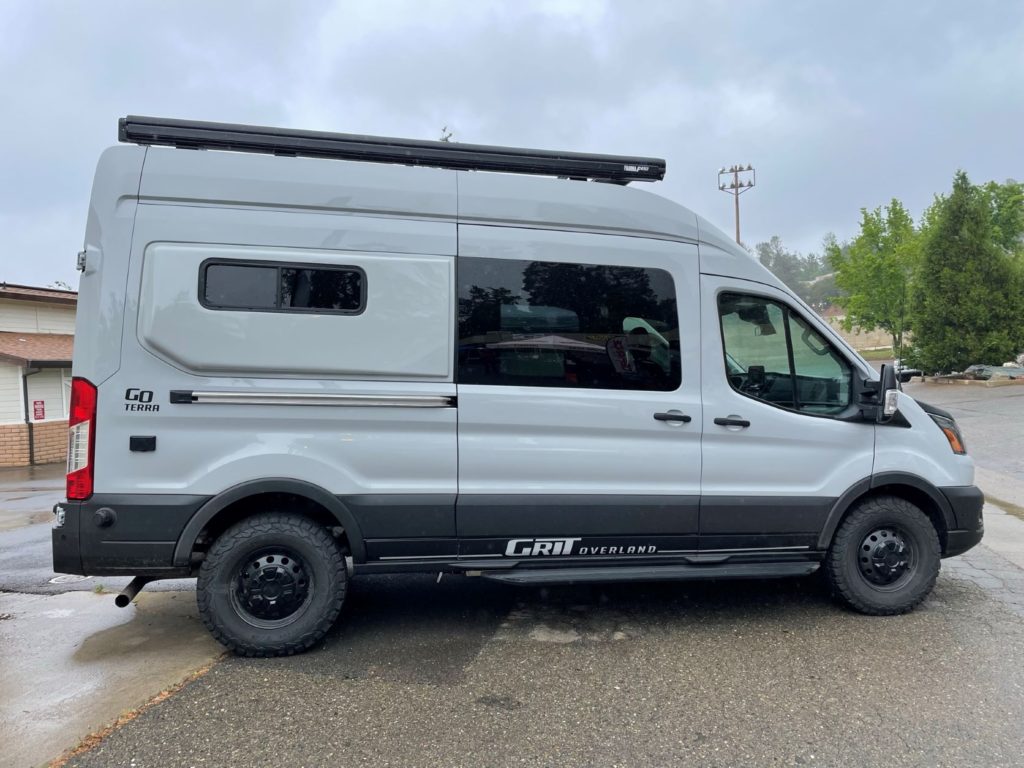
Pros of Camper Vans
- They are easy to drive and do not require a special license. The compactness of camper vans makes them more comfortable to drive.
- They have extensive off-road capabilities. Some camper vans offer 4-wheel drive, allowing you to explore any terrain.
- Camper vans fit in parking spaces and can even be parallel parked. This makes them easy to park and use in cities.
- Compared to travel trailers and larger RVs, camper vans save on tolls and transportation fees.
- You will not draw as much attention in a camper van should you need to park in public.
- They are warmed while driving. On cold nights, you will not need to wait for your living area to warm up like in a travel trailer.
- Camper vans are the most fuel-efficient type of RV.
Cons of Camper Vans
- Camper vans can only accommodate two people sleeping. You would need to spend more money on additional accommodations for larger parties.
- When you have a camper van, you may have to break camp whenever you need to leave the campsite.
- They have very little storage space.
- Camper vans are more expensive than their alternatives per square foot.
- They have convertible beds. Camper vans do not have room for permanent beds, so the beds will convert into a sofa or fold up against the wall.
- Camper vans have very small bathrooms if any. They will also not have a separate shower, although the bathroom sometimes can double as a wet room.
If you’d like to see which camper vans are more reliable, read this. If you’d like to see some of my favorites, read this.
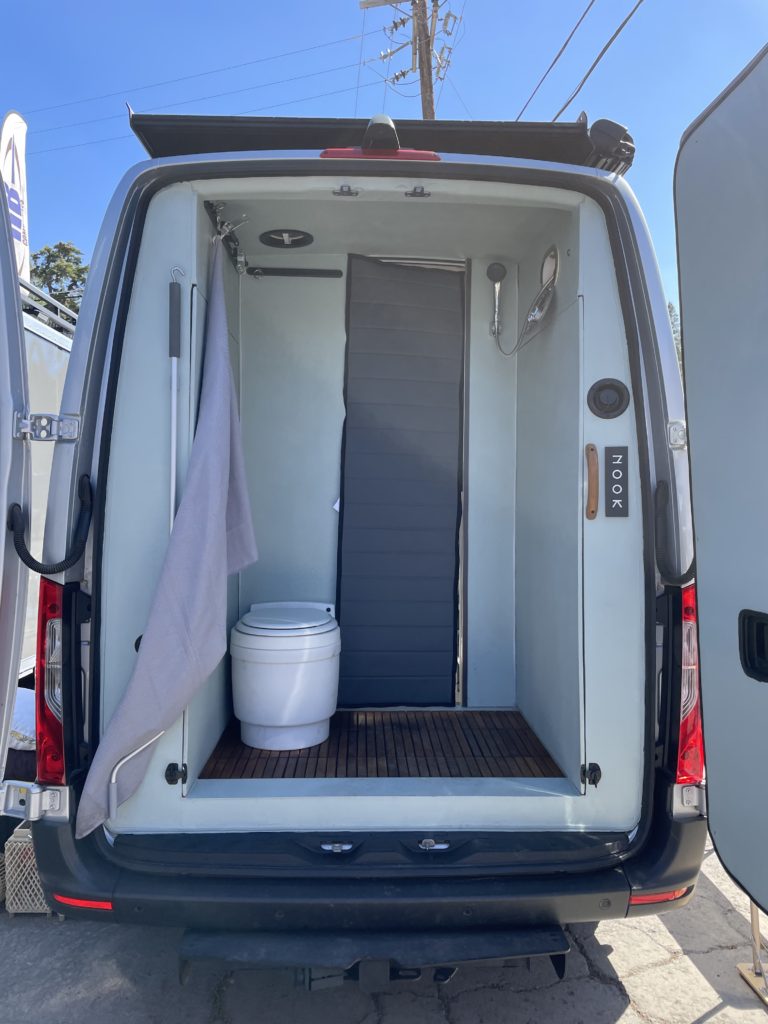
Reasons Why a Camper Van Might Be Worth the Money
In this section, I will take you through several reasons why a camper van could be right for you.
You Want Something Easy To Drive
One of the advantages of camper vans over travel trailers or RVs is how easy they are to drive. Most camper vans are between 18 and 24 feet (5.5 and 7.3 meters) long. The average pickup truck is 20 feet (6 meters) long. This makes camper vans easier to handle, and you do not need a separate driver’s license to drive them.
Driving a large RV or towing a trailer is a very different driving experience, and not everyone is comfortable with it. Camper vans, on the other hand, are extremely easy to operate.
One of the challenges we had, when we were in our rented camper van in New Zealand, is that everything is tiny. The roads are tiny and the city streets are often one-way. Even the bridges are one-way!
In Wellington, our “campsite” was a parking spot in a small parking lot. We would have never gotten a larger camper on that site.
You Like To Explore off the Beaten Path
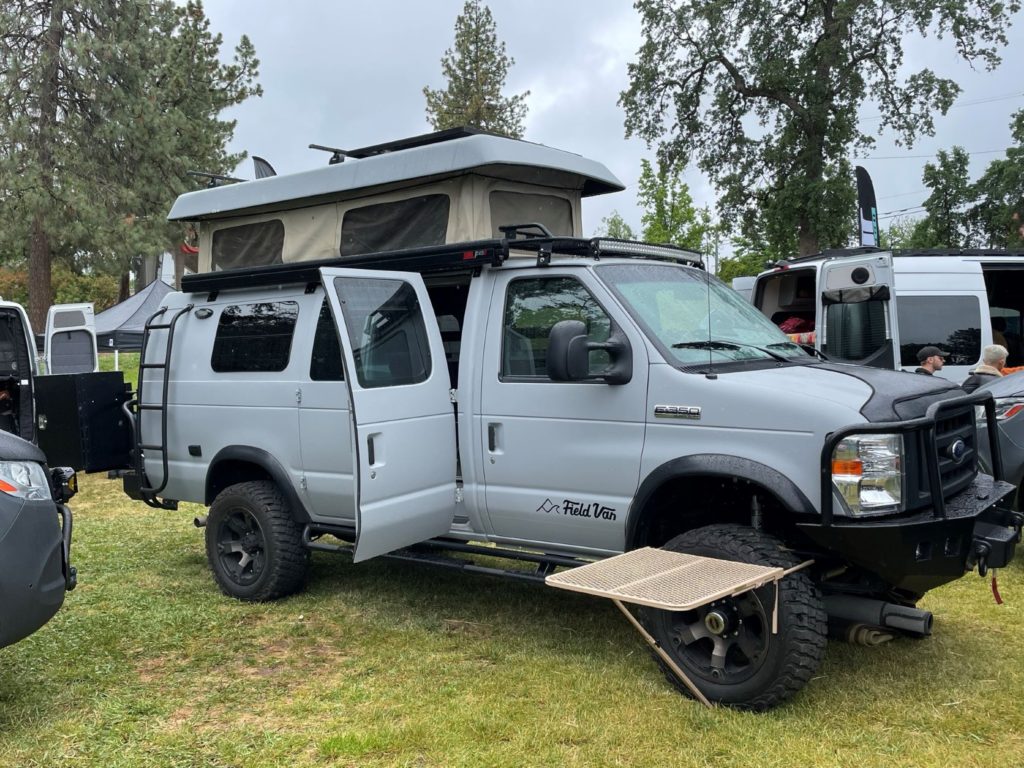
If you watch our YouTube videos, you know that we like to live life off the beaten path.
A camper van is the best choice if you enjoy wild camping outside of typical campgrounds. Camper vans are more compact, lighter, and often have 4-wheel drive, which allows them to handle terrain that larger RVs and trailers cannot.
Camper vans allow you to travel off-road to find secluded spots to enjoy nature away from other travelers.
You Want More Parking Options
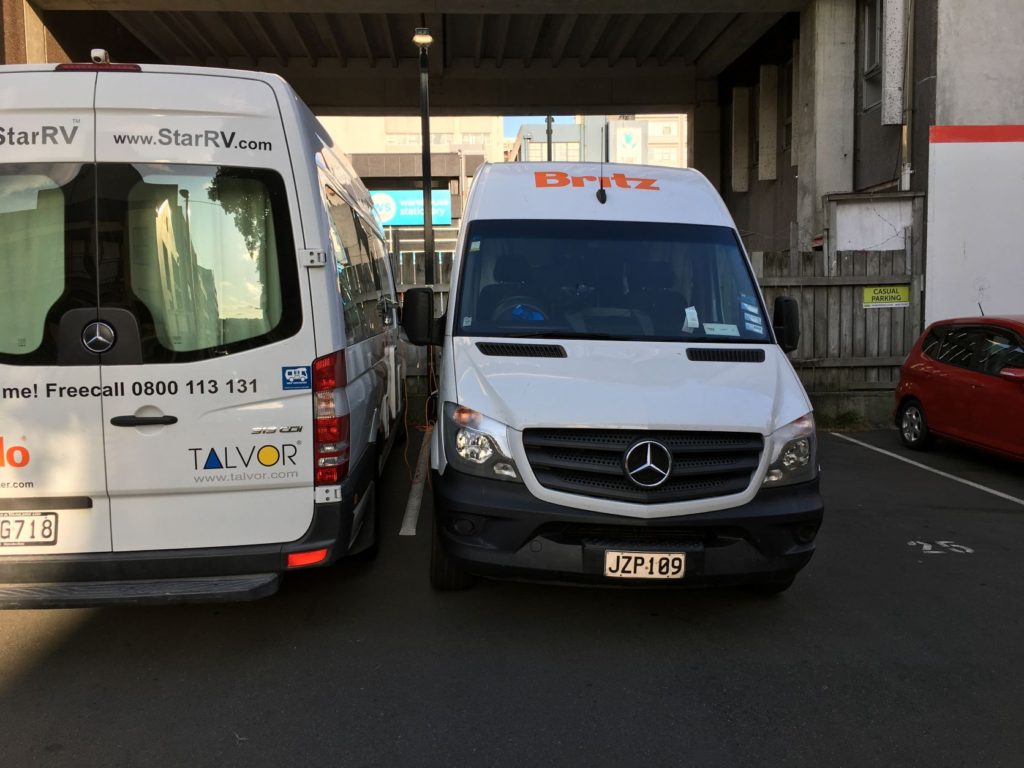
The fact that a camper van can fit in a standard parking spot gives you much more flexibility when it comes to traveling. The compact size makes it easier to stop at stores, gas stations, and drive-thrus.
You can even parallel park a camper van, making it easy to park along the side of a street.
Right now, we have a small travel trailer. My husband drives because I don’t feel confident maneuvering the trailer. A camper van is easy to drive and maneuver.
You Need To Drive in the City
Camper vans can navigate city streets easily. They are short enough that they’re easy to navigate through tight spaces and fit in parking garages. The ability to parallel park is advantageous in cities, where metered parking along the side of a road is common.
You Want To Travel Unrecognized
Camper vans are very versatile and are the best option for spending the night outside of campgrounds. Sometimes you may need to pull off into a parking lot or on the side of a small road for the night. RVs and travel trailers can attract attention, but when you pull the blinds on a camper van, it does not stand out.
This also makes a camper van a safer option for people traveling alone. Women also say that the ability to drive away from a situation that feels unsafe quickly is another big bonus of a camper van.
When you have to make a quick overnight stop, it’s nice to be incognito.
You Frequent Toll Roads or Ferries
Traveling can take you to all sorts of places, so anytime you can save on fees, it is a huge win. Camping vans cost less to take on toll roads, ferries, or transport across the ocean than travel trailers and larger RVs.
These fees are usually determined by either the number of axles or the vehicle’s weight. Camping vans have two axles, unlike a car pulling a trailer. They also weigh much less than other classes of RVs. They also take up less space, so shipping the vehicle internationally or across a river will cost you less.
We took our travel trailer on the ferry in Washington. Fortunately, we pulled in and pulled out. I have seen ferries where you have to back your RV onto the ferry. Backing a camper van would be so much easier than backing a travel trailer.
You Want Better Fuel Efficiency
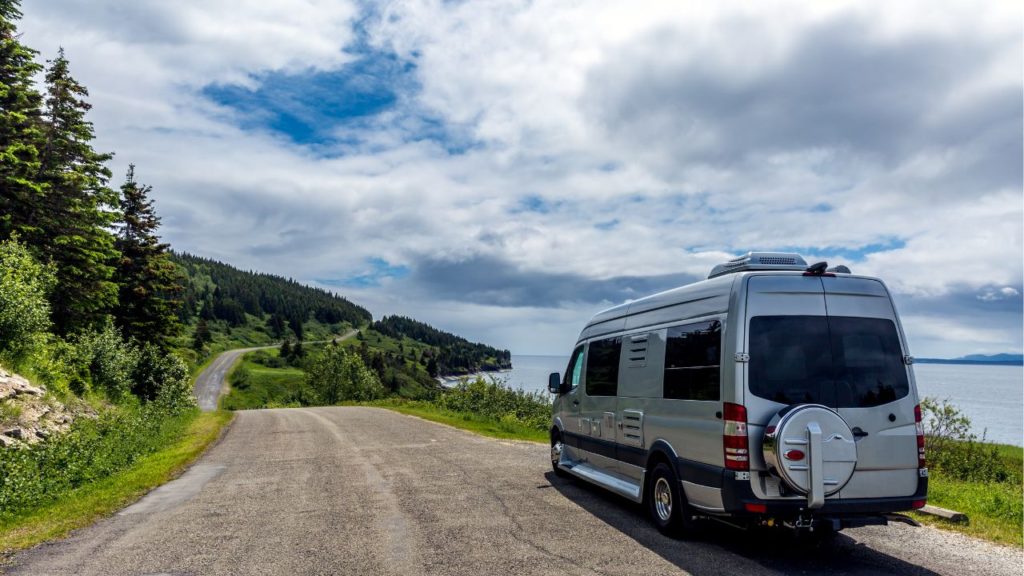
Gas prices have gone through the roof!
Camper vans are small and aerodynamic, so they have less resistance than an RV and less drag than a travel trailer. This saves gas, and therefore, money.
If you’re taking a few trips a year, this may not be a significant issue for you, but the more you travel, the more your gas costs will begin to add up.
You Do Not Have Much Room To Store a Vehicle
When deciding whether an RV or travel trailer is right for you, you must consider what will happen to it when you’re not out adventuring. Often, you will need to store your vehicle at home.
Some neighborhoods have bylaws that prohibit having ‘eyesores’ such as large RVs or trailers outside your home. Other houses just do not have the space for an oversize vehicle.
Camper vans can easily fit in a driveway or along the side of a road. Some will fit in your garage.
Reasons Why a Camper Van Might Not Be Worth the Money
On the other hand, there are several drawbacks to camper vans. Here are some of the negative aspects of camper vans that you should consider before making a decision.
You Are Limited To Two Travelers
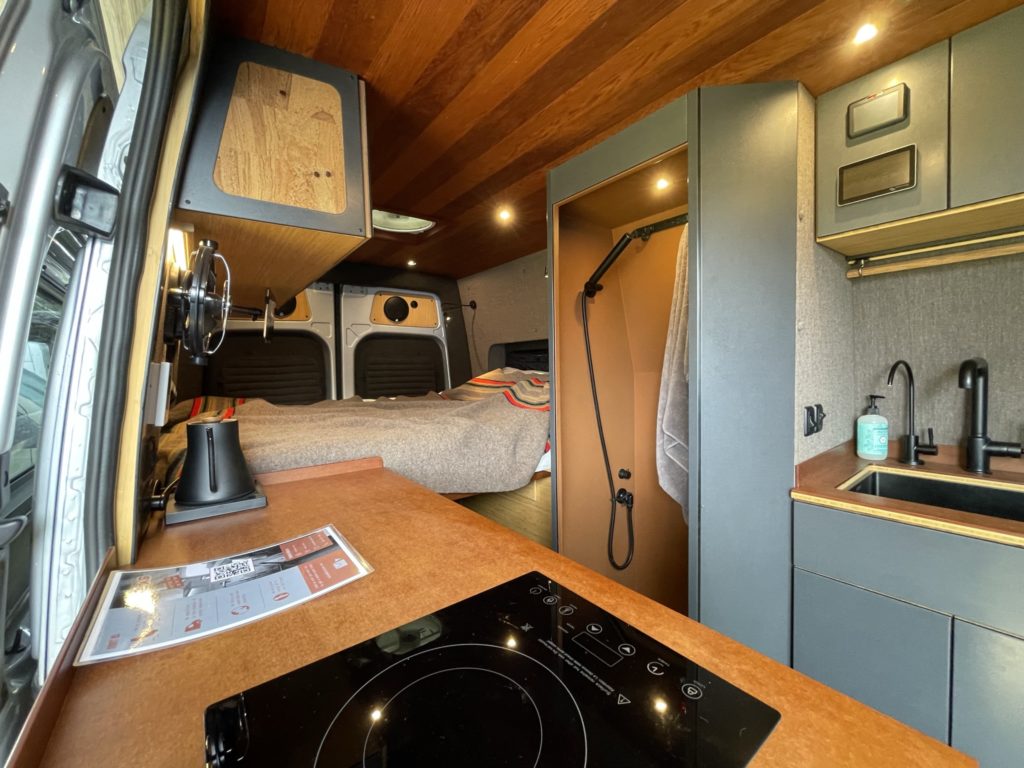
Although a camper van can often accommodate four to six people while traveling, it can only comfortably accommodate two adults sleeping.
Often, larger families opt to bring a tent or two and set up a larger campsite around the van. While this is certainly a viable option, it can be frustrating to invest in a travel vehicle that cannot accommodate the entire family.
Suppose you will need additional accommodations for a larger party. In that case, it is essential to consider the cost of the other equipment you will need. Tents come in a wide price range and can cost anywhere from $50 to $500. With sleeping bags and other camping equipment, the expenses can quickly add up.
You Do Not Have Storage Space
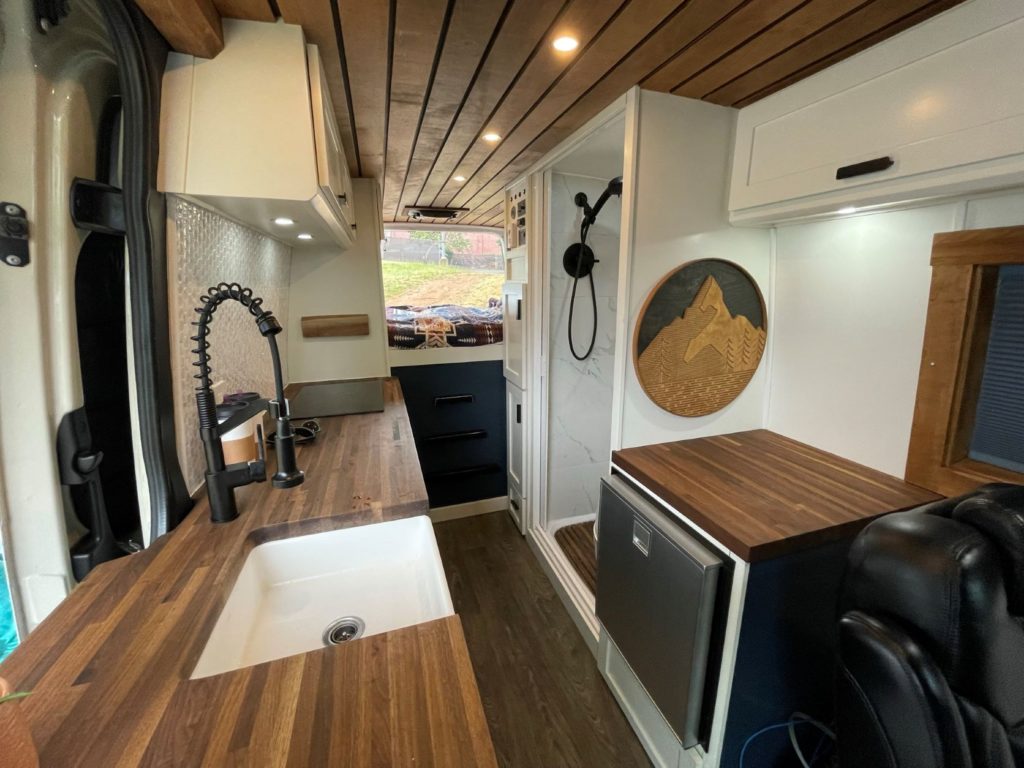
Storage space is critical when traveling, and camper vans do not have much of it. While there are plenty of tips and tricks for utilizing all of the space you have, many items cannot be worked around.
The square footage is the most significant factor here, but the furniture setup also contributes to the lack of storage space. Since the furniture is convertible, there is no extra space under the bed or sofa like you would find in a larger RV or travel trailer.
You should consider any large items such as bikes, kayaks, skis, and other sporting equipment you might want to bring along. Sometimes you will have the option to store these items externally, either on the rear of the vehicle or on the roof. Even if you can travel with larger items in the van, you should have a way to secure your supplies outside the vehicle at night.
You Will Not Have a Permanent Bed
Camper vans have limited space compared to larger RVs and travel trailers. One way they compensate for the lack of space is by using convertible beds. Most camper vans have sofas that can be reconfigured into beds at night and a few have pull-down beds that fold up into the wall.
While this may be fine for the casual traveler, people who spend long periods in their van often find that it is a hassle to reconfigure daily. It also forces everyone to go to bed at the same time since the bed takes up the communal area.
You, Will, Have To Take Your Campsite With You on Excursions
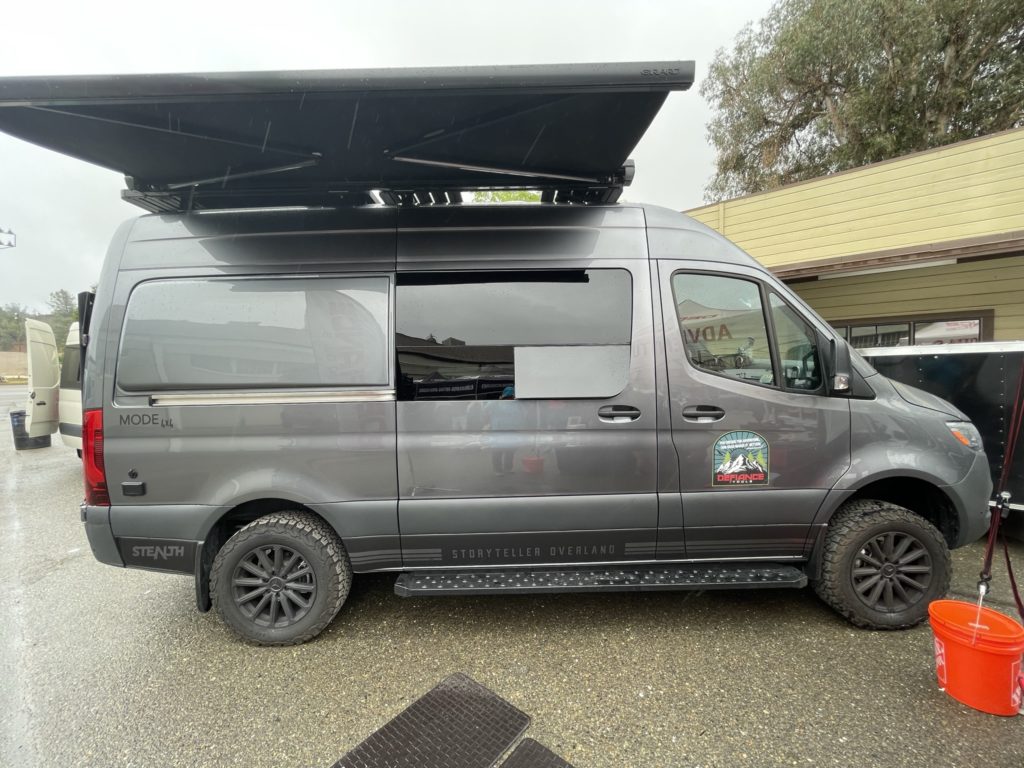
We have all been in situations that require us to leave the campsite, whether we need to make a quick run to the store at night or take an excursion during the day. Like all RVs, camper vans are all-in-one vehicles. While there are some advantages to having your campsite and your car together, it can be inconvenient if you need to take a trip.
This also forces the entire party to stay together. If you are setting up a larger campsite, you may be able to split up your group, but you won’t be able to experience the flexibility you have with a travel trailer.
If you need to go somewhere, it is not always as easy as jumping in the driver’s seat and taking off. Often, you will need to pack up all of your things to secure them again before driving. Some camper vans are configured so that the bed covers the back seats, requiring you to close up the bed entirely to drive. Pull-out awnings must also be disassembled before taking off.
Making a quick store run can also mean risking losing your spot, especially at public campgrounds.
You Will Have No Bathroom or a Very Small One
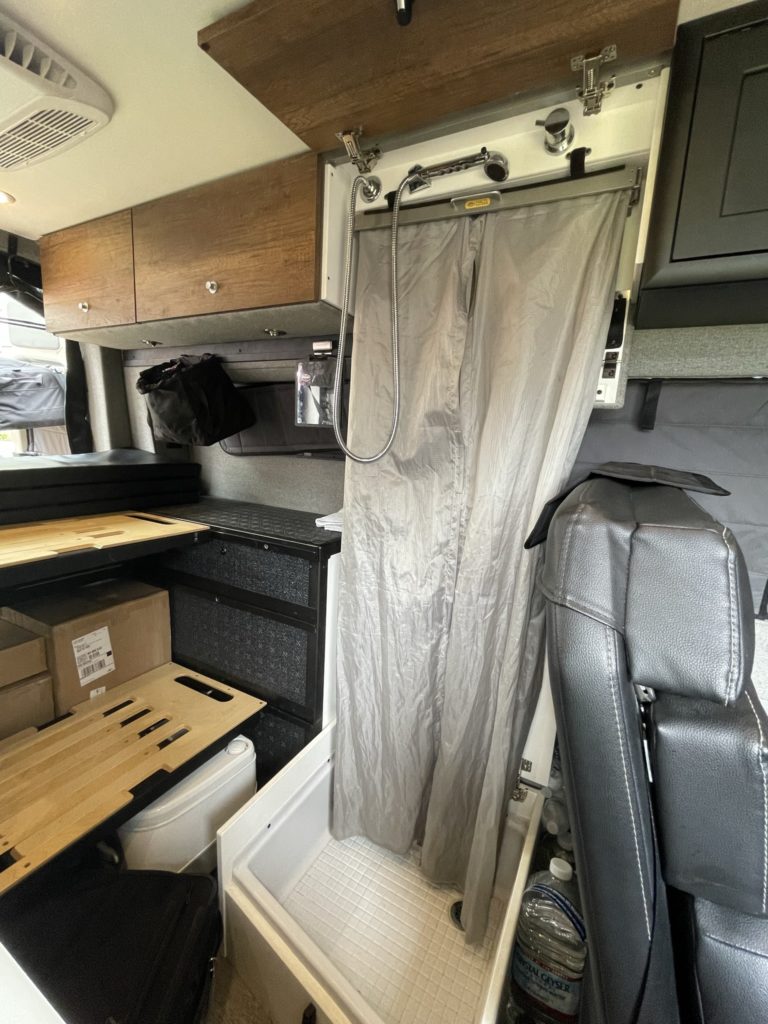
Bathrooms are often the first to get left out to make more room in a camper van. If you are looking for a full bathroom, a camper van will not be the best fit for you.
Camper vans may have a small bathroom with a sink and toilet, just a toilet (which will often be tucked away), or no bathroom at all. They certainly do not have room for a shower, although sometimes a small bathroom will double as a wet bath.
The importance of having a bathroom in your camper van depends on where you will be spending most of your time. Most public campgrounds and national parks have bathrooms for campers, and public rest stops are available while you are traveling.
However, if you spend much of your time wild camping outside campgrounds, you may want to have a larger bathroom. Larger RVs and travel trailers will come with larger bathrooms, often with a separate shower.
If you’re looking for a space-saving, portable option, take a look at my article on the best toilet for camper vans.
Camper Vans Are More Expensive Than Their Alternatives
Camper vans, RVs, and travel trailers all come in a range of price points. However, when it comes to the space you get for your money, camper vans cost more per square foot than other travel vehicles on the market.
Travel vehicles also depreciate slower than standard vehicles. While this means that your camper van will be worth more if you ever want to resell it, it also means that used camper vans are not sold at the type of discounts that a regular car would be.
Conclusion
Camper vans are worth the money for singles or couples who are looking for that flexibility of traveling everywhere, from city streets to wild mountains. They are easy to drive and have the best fuel efficiency of all travel vehicles.
However, their limited space means that they cannot accommodate more than two people comfortably, have limited storage, and may not have a bathroom. Per square foot, camper vans are more expensive than the other options but save money on gas, tolls, and transportation costs.
Sources
- Admiral: 10 Reasons Why You Should Buy A Camper Van
- Outside Pulse: How Much Does a Camping Tent Cost?
- The Van Mart: Camper Van vs. RV
- Uprooted Traveler: Eight Reasons Why You Should Buy A Travel Trailer Instead Of Vanlife
- YouTube: 5 Reasons to Avoid Class B RVs
- YouTube: Camper Van vs. Caravan – which is better?
